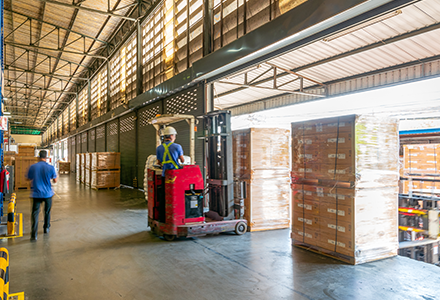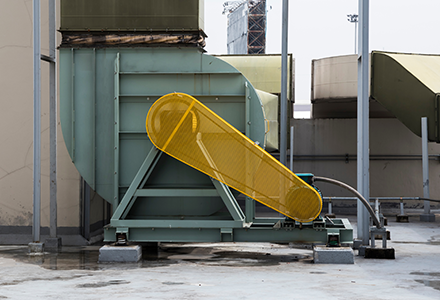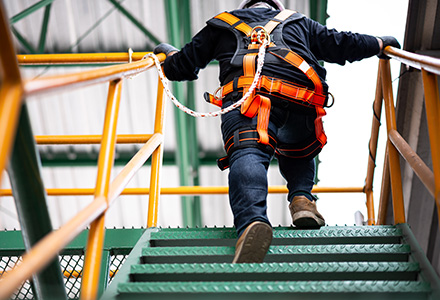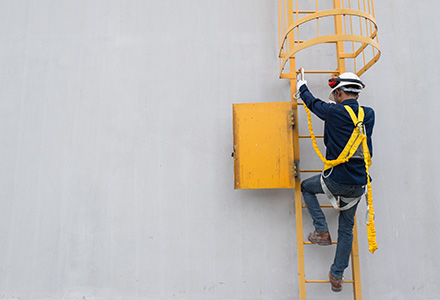Safety Net Blog
MEMIC's all about workplace safety blog since 2008! Easy-to-read safety advice combines with email delivery to give you a whole new way to keep your safety program on track. If you'd like to search a topic not listed, please use the overall site search at the top right.

How to Deliver Safety to the Loading Dock Environment
Heavy freight, temporary trailers, mobile equipment, and hurried personnel with variable training combine to make loading docks uniquely hazardous. Shipping and receiving personnel must be alert and properly trained in material handling and equipment...

For workers, summer wanes but the heat remains
Last time, as part of our impromptu series on heat safety this historic climate summer, we identified occupations with the worst heat risk, with tips on how to avoid or mitigate the hazards of working in excessive heat.

The Heat is (Still) On, Especially In These Jobs
In our July 13 post, we reminded you about the seriousness of heat-related illness in the workplace. In the four weeks since then, data indicates workers toiled through the hottest days in earth’s history -- a trend that seems certain to continue.

If You Can’t Stand the Heat – Go Somewhere and Cool Off!
More than 40 million people were under heat alerts in the South and Southwest this week, with heat indices in places like San Antonio, Texas, expected to reach 110 degrees Fahrenheit and 30 U.S. localities on alert for record heat.

Addressing Heat Hazards is Still Pretty Cool
Proactive employers should look to develop and implement programs to protect their employees as OSHA shapes its National Emphasis Program (NEP) to protect employees from heat-related hazards in industries such as automotive, warehousing, manufacturin...

Haste Not Helpful When Helping a Fallen Patient
To aid a person after they fall, the first instinct is to immediately help them up. But, if you can’t prevent a fall, you must take care not to cause injury, or worsen an existing injury, by assessing the situation before lifting the fallen person...

Are Your Guards in Place? Quick Tips for Improving Machine Guarding Safety
When machine guards are used properly, they keep employees safe. But, too often, these tools that protect workers in a manufacturing setting are left in an open position, set aside, damaged, or unused.

Keeping Temporary Workers Safe: Whose Responsibility is it Anyway?
The safety of temporary workers is the joint responsibility of the host employer and the staffing agency that places the worker. Both entities should take steps to complete a risk assessment for the job function and location.

Spelling Out Fall Protection Beyond the A-B-Cs
Fall protection during work from heights is generally governed by the basics of anchoring, body harnesses, and connectors. But to make a comprehensive assessment, safety directors must go beyond those simple techniques and look at a variety of consid...

Ladder Safety Part 2: Does your Ladder Safety Training Get High Marks?
Workplace ladder usage, regardless of industry, is a high-risk task that should be part of any new or existing employee training plan. Training should include ladder selection, inspection, hazard identification, fall protection measures, and safe wor...
Subscribe to the
Safety Net Blog
Get notified when new blog posts are published.
